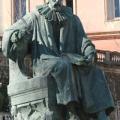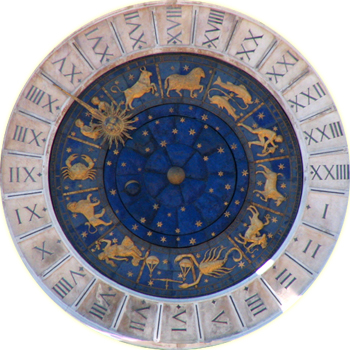366. The Men Who Saw Tomorrow: Renaissance Magic and Astrology
Ficino, Pico, Cardano, and other Renaissance thinkers debate whether astrology and magic are legitimate sciences with a foundation in natural philosophy.
Themes:
• C.V. Kaske and J.R. Clark, Marsilio Ficino: Three Books on Life (Binghamton: 1989).
---
• O. Akopyan, “Giovanni Pico della Mirandola and Astrology (1486-1493): from Scientia Naturalis to the Disputationes adversus Astrologiam,” I Tatti Studies in the Italian Renaissance 21 (2018), 47-66.
• M. Azzolini, The Duke and the Stars: Astrology and Politics in Renaissance Milan (Cambridge MA: 2013).
• B.P. Copenhaver, Magic in Western Culture: from Antiquity to the Enlightenment (Cambridge: 2015).
• B. Dooley (ed.), A Companion to Astrology in the Renaissance (Leiden: 2014).
• E. Garin, Astrology in the Renaissance: the Zodiac of Life, trans. C. Jackson and J. Allen (London: 1983).
• A. Grafton, Cardano’s Cosmos: The Worlds and Works of a Renaissance Astrologer (Cambridge, MA: 1999).
• S.J. Rabin, “Pico on Magic and Astrology,” in M.V. Dougherty (ed.), Pico della Mirandola: New Essays (Cambridge: 2008), 152-78.
• N. Tarrant, “Giambattista Della Porta and the Roman Inquisition: Censorship and the Definition of Nature’s Limits in Sixteenth-Century Italy,” British Journal for the History of Science 46 (2013), 601-25.
• C. Vasoli, Magia e scienza nella civiltà umanistica (Bologna: 1976).
• D.P. Walker, Spiritual and Demonic Magic: from Ficino to Campanella (London: 1958).
• P. Zambelli, L’ambigua natura della magia: filosofi streghe, riti nel Rinascimento (Venice: 1996).







Comments
What happened to episodes on…
What happened to episodes on renaissance musical theory, della porta, and alchemy?
In reply to What happened to episodes on… by mehmet
Missing episodes
I'm going to look at alchemy as part of the Reformation series since many of the relevant authors there are Northern European. Della Porta is discussed in this episode here, actually. As for musical theory, I thought I might do that at some point but decided that it would be enough to talk about the reception of Pythagoras in the mathematics and art episode (361).
Appreciation
Hi there.... is this thing still on? Well I'm not sure if it is, or if you're even still around in the comments Mr Adamson, but as a student a couple of years away from University who is setting his sights on studying Philosophy and Theology and has just started this podcast (I say just started, but I've devoured episodes 1 to 7 in what feels like a matter of minutes) I just wanted to express my sincere appreciation for this, quite frankly, outstanding (and free!) resource. I hope to be able to find a particular category of philosophy that really interests me using these podcasts (as a Muslim, I'm very much looking forward to the Islamic World section), so that I might be able to find some further reading and properly develop my understanding of philosophy. Many thanks and Salam!
In reply to Appreciation by Nanashi
Thanks
Thanks, that's great! Yes I do read all the comments and really enjoy hearing from listeners. Glad you have found the series useful, and hope you enjoy the further episodes!
Campanella's Rite
I have long enjoyed this podcast, and was very excited to see this episode and the last discuss something I am currently publishing on - Campanella, Ficino, and Astral magic. I am a musicologist who studied Campanella under John Headley and he is at the center of my research: music at the Barberini Court. You mention Campanella's Rite he performs for Urban VIII at the end of the episode. I have long wondered where, exactly, Campanella came up with this Rite. I know of all of its details and have read the original sources at the Vatican library and elsewhere. So, I know what happened and why, but I would like to know where did Campanella get the specific ideas to do this exact Rite. It seems like something more than just what he learned from Ficino. Is this a Rite he could have encountered or read about somewhere?
Also, thank you for creating an episode about the science of astrology and its importance in the Renaissance.
In reply to Campanella's Rite by Virginia Lamothe
Campanella
Wow, that's really interesting! I'm glad that the episode was still interesting to such an expert listener as yourself. I don't know the answer to your question, and actually I'm not sure whether it is even possible to establish his sources. If you find out more it would be great if you could let us know!
Add new comment